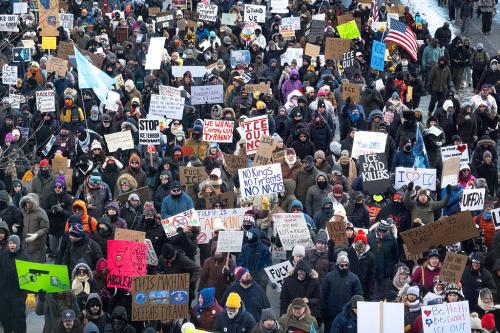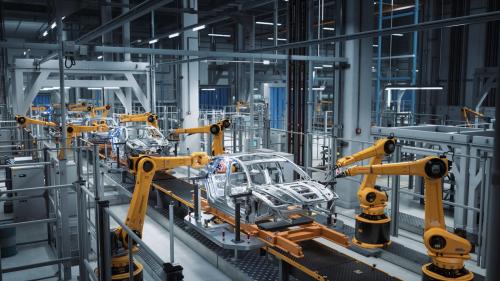The road to economic transformation in southeast Michigan is not an easy one. While still reeling from the loss of lots of good-paying auto-related jobs, the attempts to move forward economically hit a further detour with the sub-prime credit fiasco.
We see a growing understanding in Michigan and the Detroit area that the path to prosperity is about people getting fundamentally better educated than the previous factory economy demanded of them. It also means diversifying the economy to exploit new areas of opportunity in energy, design and engineering, freshwater technology, arts and entertainment, and as a logistics and trading center in North America.
What we don’t see is a federal government, or the presidential campaigns, having any understanding of how it could assist metropolitan communities such as Detroit that are the hardest hit by the nation’s move from an industrial to a knowledge economy.
Around the country, we are solidifying our status as a metropolitan nation. Our metropolitan communities are the economic activity centers of the global economy. This is as true in Michigan as it is in the rest of the country; 53% of Michigan’s gross state product is generated in the greater Detroit area.
All of the things Detroit and southeast Michigan are trying to do — largely unaided — to transform the regional economy could be significantly helped by a federal government that was a partner, not a delinquent.
For instance:
- Federal investments in next generation energy solutions to fuel the research and development engines at Michigan universities and energy technology firms. The brains and hands that shone in now lost auto jobs would find new success in energy technology jobs, from the design of new batteries to the manufacture of precision wind turbines.
- Federal transportation policy that replaces earmarks and bridges to nowhere, with flexible resources to support the aerotropolis and bridges to Canada that can fuel regional commerce.
- Meaningful federal housing policy to dramatically increase the ability of communities to develop vitally needed market-driven, mixed-use and mixed-income neighborhood development.
- A sane border crossing and security policy to accelerate trade and transactions with our trusted neighbors.
- Finally, follow through on a planned $25-billion program to clean up the Great Lakes, in part by improving aging sewer and infrastructure systems. A recent study completed by Brookings demonstrated that a federal follow-up would have at least an $80 billion-$100 billion economic benefit for Michigan and the other Great Lakes states.
It is imperative that Michigan and its sister states in the industrial Midwest not wait to catch a break — but make their own breaks by demanding to know from the aspirants for president and our federal elected officials what they are specifically and tangibly doing to deliver for economic transformation.
Brookings is attempting to help by working with metropolitan communities across the country as part of its Blueprint for American Prosperity initiative — developing practical federal policies that support the vitality of metropolitan communities such as Detroit. A major step forward was recently taken when Brookings joined the Detroit Regional Chamber of Commerce and 30 other chambers from the Midwest to come together and develop a set of federal action priorities.
There are eight months before we choose our next president. So it is time to keep it up, and keep it focused, and insist the next president and federal government are partners in Michigan’s economic transformation, not merely passengers just breezing through to say hello.
BRUCE KATZ, is vice president of the Brookings Institution, and directs Brookings’ Metropolitan Policy Program. JOHN AUSTIN is vice president of the Michigan State Board of Education, a nonresident senior fellow with the Brookings Institution of Washington, D.C., and director of the Brookings Great Lakes Economic Initiative.
The Brookings Institution is committed to quality, independence, and impact.
We are supported by a diverse array of funders. In line with our values and policies, each Brookings publication represents the sole views of its author(s).



Commentary
Op-edAsk Candidates How They’ll Help Fix Michigan
March 11, 2008